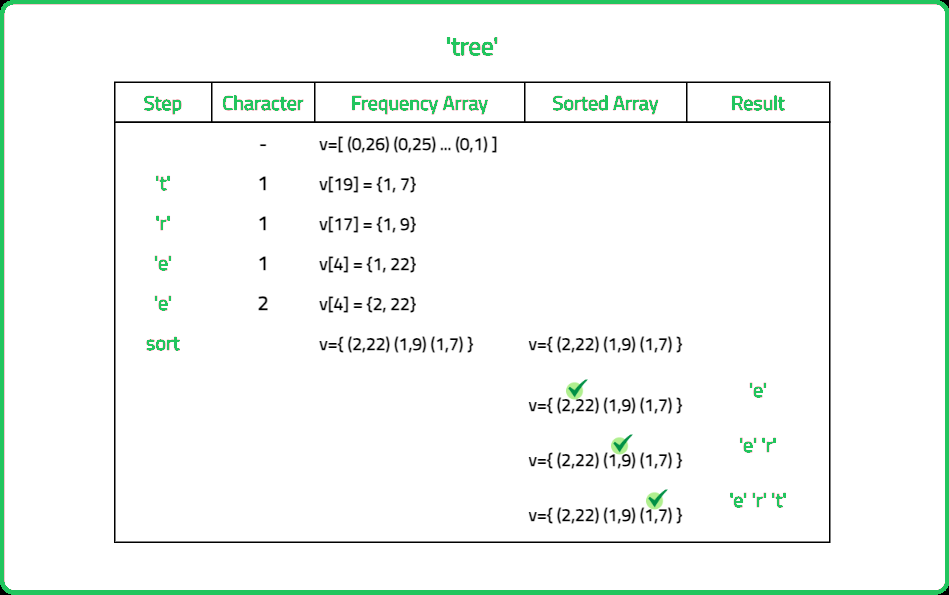Sort characters by frequency
Beginner Problems
Basic Strings
Easy
- This problem is often encountered when developing data analysis tools or text editors, where understanding the frequency of character usage can be important
- For instance, optimizing compression algorithms such as Huffman coding relies on knowing the frequency of each character in the dataset
- This problem's concept is also used in SEO (Search Engine Optimization) analytics, where the frequency of certain words or characters can affect a webpage’s visibility in search engine results
You are given a string s. Return the array of unique characters, sorted by highest to lowest occurring characters.
If two or more characters have same frequency then arrange them in alphabetic order.
Examples:
Input : s = "tree"
Output : ['e', 'r', 't' ]
Explanation : The occurrences of each character are as shown below :
e --> 2
r --> 1
t --> 1.
The r and t have same occurrences , so we arrange them by alphabetic order.
Input : s = "raaaajj"
Output : ['a' , 'j', 'r' ]
Explanation : The occurrences of each character are as shown below :
a --> 4
j --> 2
r --> 1
Input : s = "bbccddaaa"
Constraints
- 1 <= s.length <= 105
- s consist of only lowercase English characters.
Company Tags
TCS
Cognizant
Accenture
Infosys
Capgemini
Wipro
IBM
HCL
Tech Mahindra
MindTree
